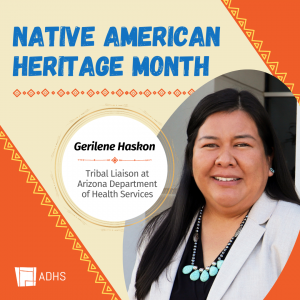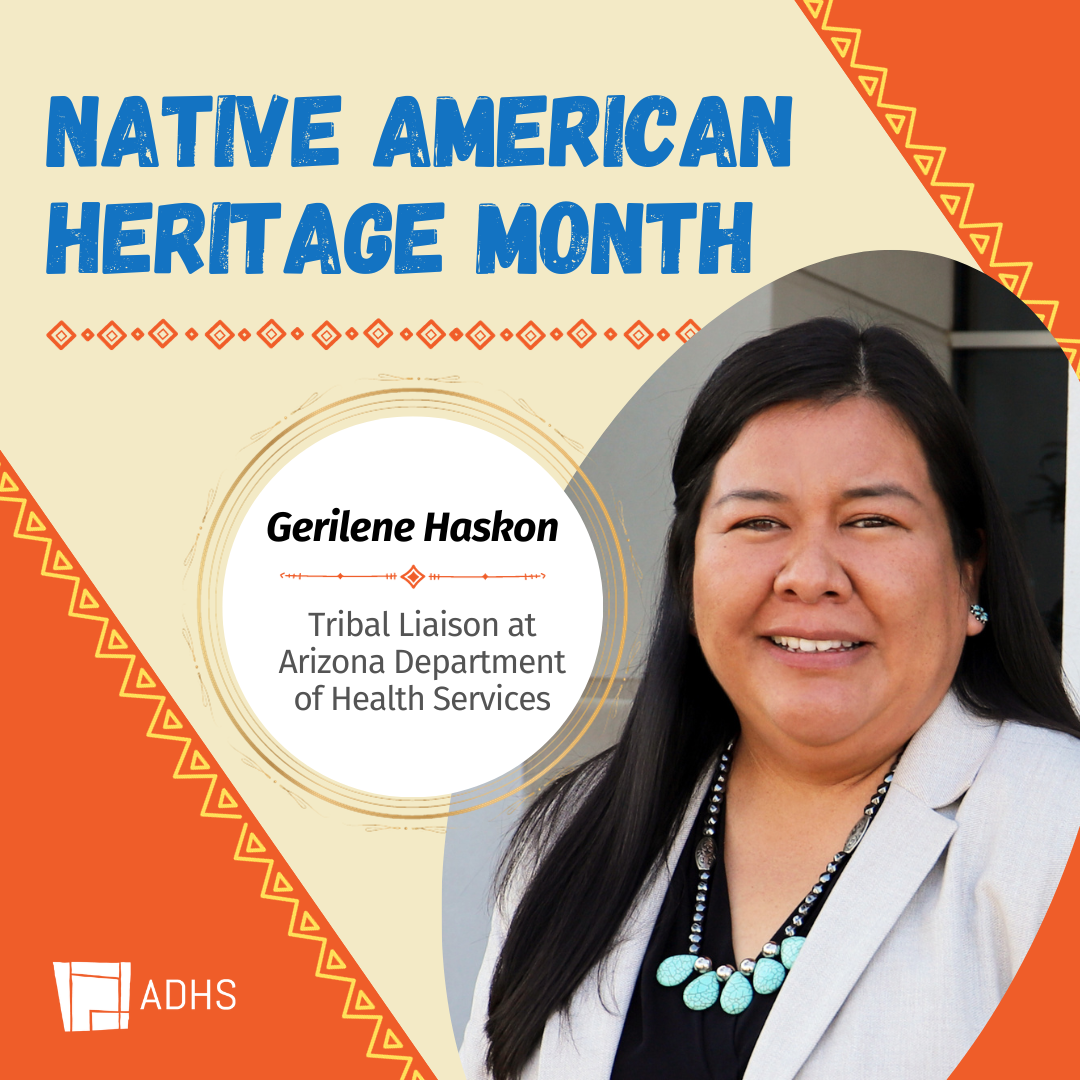 ADHS continues to celebrate Native American Heritage Month by highlighting ADHS Team Member, and Tribal Liaison, Geri Haskon. Gerline was appointed to the role earlier this year.
ADHS continues to celebrate Native American Heritage Month by highlighting ADHS Team Member, and Tribal Liaison, Geri Haskon. Gerline was appointed to the role earlier this year.
Although she is new to her role, advocating for tribal health has been a lifelong journey and career for Geri. She works to exemplify the traditional teachings passed down to her as a member of the Diné (Navajo Nation): K’e (kinship), believing in the creator, maintaining a positive mindset entering a new space, and respecting all beings on mother earth.
Geri grew up in a one-room hogan in Tuba City on the Navajo Nation, bordering the Hopi village of Moencopi and the San Juan Southern Paiute. There with her four siblings, Geri would huddle around the kerosene lamp to do homework, listen to her dad’s childhood stories, and sleep under the stars in the bed of her dad’s pick up truck.
In the summer, Geri would go to her maternal grandparents’ sheep camp in Bodaway/Gap near the Grand Canyon and her paternal grandparents’ home in Neesta (up in the mesa near Many Farms, AZ).
Her youth was spent surrounded by extended family including her grandma, grandma’s sisters, uncles, aunts, and cousins. She enjoyed Tuba’s close-knit community, with all of her family living nearby and many people always there to take care of her and her siblings.
Geri began her path of health advocacy from a young age. Her parents speak Diné Bizaad, but not English, and she noticed this caused them difficulty in accessing adequate health care. She began supporting them as an interpreter to get them the care they needed.
In those early experiences, Geri found her purpose. She began her journey in healthcare so she could help people to be understood and actively participate in improving their health.
“A lot of tribal communities are very maternal, matrilineal societies,” she said. “Mothers and women are sacred to the community and I think that’s what drew me to it. Also my connection with my mother and providing that type of support and understanding has been very helpful.”
During her college summers, she interned with the general surgeons in Tuba City assisting them with medical translation, further spurring her interest in advocacy for tribal communities.
She was also proud to help surgeons learn simple medical terminology in Diné so they could better communicate with patients, as well as provide support and understanding to patients themselves.
“The [patients] that have been very impactful to me were the grandmothers that came in from outside the community, that lived more in the rural-rural communities, more rural that I was in, for them to understand,” she said, “It provided them that trust and that comfort when they came in.”
Expanding awareness of the needs of rural areas for health services and skilled health care professionals is also a key area for Geri.
“We were able to do county visits to La Paz, Graham, Greenlee, and Apache counties and they were able to share the same challenges that tribes are dealing with related to health care professional shortages, and so having that awareness for the counties and sharing that was very helpful,” Geri said.
Looking into the future, Geri says she aims to grow the tribal health program at ADHS. She also hopes to create a Indigenous Data Sovereignty Policy and other policies beneficial to Arizona and native nations.










